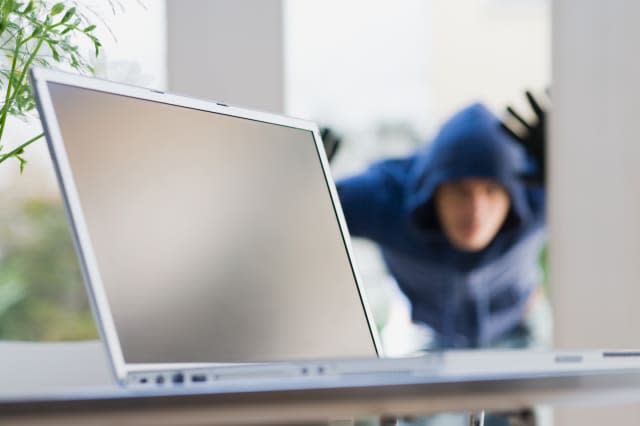The shocking hidden cost of burglary

Burglars take more than just your valuables: they can also take your peace of mind, sense of security and your self confidence. A new study has found that more than a million people who have been burgled in the UK feel so unsafe in their home afterwards that they end up having to move house.
The research, by Churchill Home Insurance, discovered that 25% of burglary victims suffer sleep deprivation, and 8% are ill as a result of anxiety. Some have experienced severe psychological trauma (5%), loss of self confidence (12%), a struggle to concentrate at work (8%) and the need for counselling (6%). Meanwhile, 11% couldn't be home alone after their home was broken into.
It takes victims an average of three days to feel normal again, while a fifth didn't recover for a month, and 8% say it took six months. One in ten said things were never the same again - and over a million ended up having to move house in order to move on from the burglary.
Worse than the financial loss
The psychological impact is often far greater than the financial one. When asked to name the worst aspect of being burgled, 45% said it was the knowledge that someone had been in their home, while 31% said it was the initial shock that was worst, and 30% felt violated.
All of these answers came higher up the list than the 29% who named losing articles of sentimental value, and the 36% who mentioned losing valuables.
Dr Claire Nee, Psychologist at the University of Portsmouth, said: "Being a victim of burglary is a traumatic experience for anyone and for some it can have a lasting emotional impact. The thought of someone in our home, our safe place, looking through our personal things can leave us feeling violated and vulnerable. The important thing for anyone who has been a victim to remember is that they are not on the burglar's agenda. The burglar targets a property to enter and exit as quickly as possible with a reasonable gain and actively wants to avoid meeting the homeowner."
Protect yourself
The psychological impact of a burglary underlines why it's so important to protect our home, even if the valuables are fully covered by insurance. There's no way to absolutely guarantee nobody will ever be able to get into your home uninvited, but you can make it so difficult that burglars leave you alone.
1. Start with the property boundary
Tall, spiky bushes will keep people from clambering into the back garden, while well-maintained shrubs in the front garden will make it difficult for anyone to lurk out of sight.
2. Sound and light
Install motion sensor lighting around the home, and crunchy gravel on the path so you can see and hear people coming a mile off.
3. Lock up outside
Don't leave expensive things like bikes and BBQs in the garden, as it will advertise your lack of security-consciousness and attract burglars. Lock these valuables in the garage or shed.
4. Secure your windows
You need window locks on every accessible window - and to use them. Then use curtains or blinds for privacy - depending on how easy it is to look in through the window.
5. Keep windows secure even when you are in
Unless you are standing beside an accessible window, it needs to be closed and locked.
6. Stand outside the window and look in
What valuables can you see? Where else can you keep them out of sight?
7. Secure the doors
Make sure you have effective locks that comply with your insurer's small print, plus a security chain. And then make sure you use them - even when you are in.
8. Change the locks after you move in
9. Never label your keys with your name and address.
Otherwise losing them in the street becomes a high stakes mistake.
10. Never leave a spare key outside
Burglars know all about the fake stones and the pots people tuck keys underneath.
11. Install timers on lights
Don't go mad, but whenever you are away, there should be a few lamps going on and off at sensible times of day.
12. Get a burglar alarm
It's the single thing most likely to put a burglar off. Of course, you also have to use it regularly.
13 Get to know the neighbours
They should have an idea of who should be coming in and out of your property - and the times of day to expect activity.
14. Stop advertising your life on social media
If you're keen to talk about a night out or a holiday, wait until you get home afterwards, so you're not advertising an empty house.
15. Be wary at the door
Distraction burglars will use any excuse to gain access to your property. Even if there's a child at the front door asking for their ball back from your garden, keep the chain on, close the door, and leave them outside while you check the garden.




